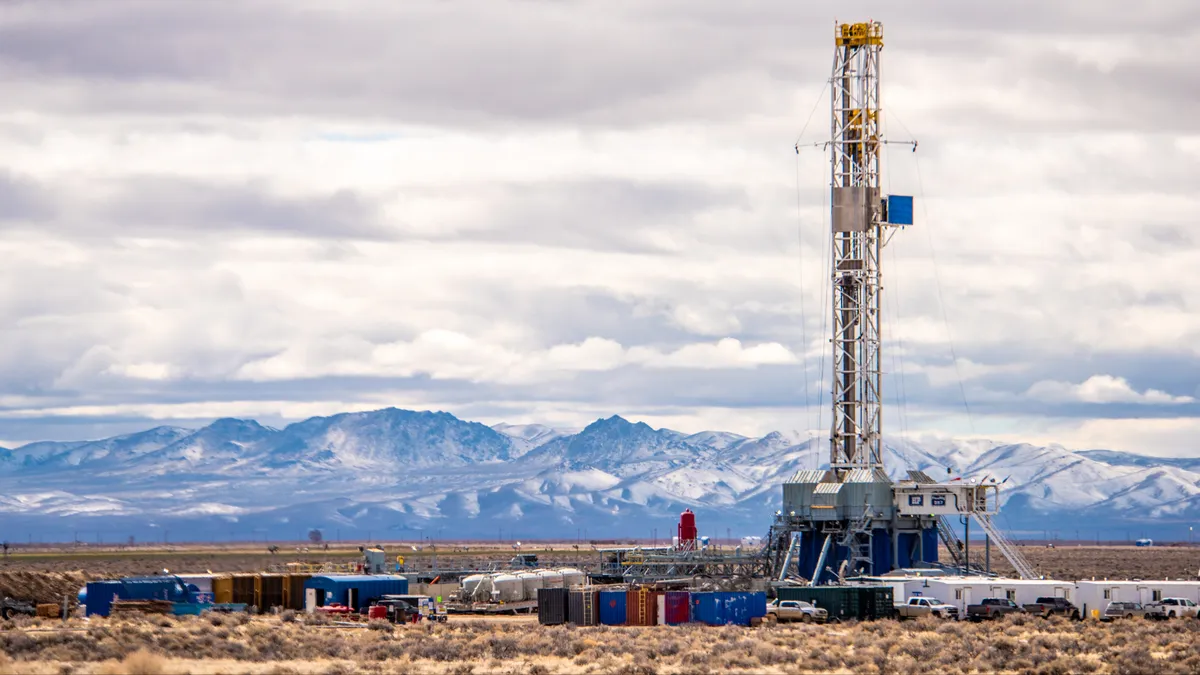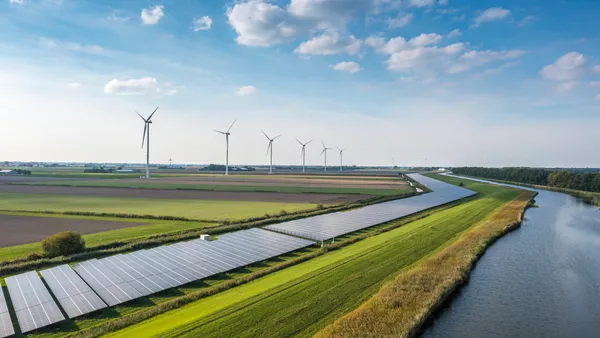Dive Brief:
- Well tests completed at Fervo Energy's Cape Station project in southwestern Utah have established it as the most productive enhanced geothermal generating station in history, according to a Tuesday announcement by the company.
- A 30-day test at Cape Station achieved a maximum flow rate of 107kg/s at high temperatures, potentially enabling over 10 MW of generation, the company said. The record-breaking test exceeds levels of productivity that the National Renewable Energy Laboratory did not believe would be possible until 2035 and is three times the well output of Fervo's commercial pilot Project Red, Fervo added.
- Fervo also said it has secured a $100 million construction loan from X-Caliber Rural Capital — and it isn't the only geothermal company looking to expand. BLM's Utah office is planning a new round of leasing in 2025 in response to growing interest from developers.
Dive Insight:
According to the company's announcement, Fervo achieved record-breaking reservoir performance at Cape Station while also pushing the limits of high temperature drilling, having successfully drilled reservoirs with temperatures exceeding 428 degrees Fahrenheit. Cape Station is slated to begin delivering electricity to the grid in 2026 and should be fully operational by 2028, Fervo said. The 400 MW project is already fully contracted, with much of the power slated for delivery to Southern California Edison.
“Fervo continues to achieve technical milestones for geothermal development that experts predicted to be set decades from now,” Fervo CEO Tim Latimer said in a statement. “At a time when 24/7 clean energy is urgently needed, Fervo has shown that the geothermal industry is ready to meet that need with power projects that can come online this decade.”
Growing geothermal demand has spurred a whole series of public land leases in recent years in Utah, including a proposed lease of more than 50,000 acres considered suitable for geothermal exploration in southwestern Utah that is slated for 2025, according to Angela Wadman, fluid minerals branch chief for the BLM. Under the federal Energy Policy Act of 2005, the BLM is required to hold competitive geothermal lease sales every two years provided that members of the public have expressed interest by nominating lands considered by the BLM to be viable and available for geothermal development, she said in an interview.
The agency's Utah office has held three competitive lease sales accounting for more than 100,000 acres of public land since 2020. Prior to 2020, BLM Utah had not held a geothermal lease sale since 2016 because there were no areas nominated for development, Wadman said.
She also noted that the Utah office has approved 22 geothermal drilling permits so far this year, compared to a total of 11 permits approved in 2023.
A BLM website indicates that the agency has issued permits to nearly 70 geothermal energy projects since 1978. Most of those permits were issued in the 1980s to projects in California, Nevada and Utah. More recent actions have added New Mexico, Idaho and Oregon to the list of states with active geothermal permits on public land.
The BLM has authority to lease up to 245 million acres of public lands for geothermal exploration and development. While the recent advances in drilling technology have spurred greater interest from developers, Wadman said they haven't prompted the BLM to expand the acreage it considers viable for geothermal energy development.
“What we're seeing, and the success of what we are seeing, is just affirming the geological data that we had,” she said.














